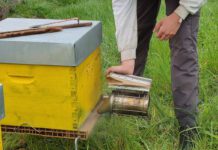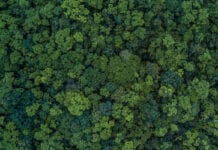A new standard method for conducting ocean research, launched on 5 October at the Our Ocean Conference in Malta, could help transform understanding of the distribution patterns of deep sea life – and the environmental factors that influence them.
It will mean that scientists can gain a more accurate picture of trends in ocean biodiversity, and how human activity is influencing them.
The new research protocol, developed by 16 leading marine scientists, is designed to be used by all disciplines – in ocean chemistry, geophysics, biology, ecology – so that the information they measure and record about the deep sea is easily comparable from project to project, from area to area.
Alex Rogers, Professor of Conservation Biology at the University of Oxford and Scientific Director of the Nekton Oxford Deep Ocean Research Institute, believes that such a tool is essential if the deep seas are to be managed sustainably.
“For sustainable management of the ocean to be improved, we need actionable data,” says Professor Rogers, one of the scientists behind the new protocol, which is named General Ocean Survey and Sampling Iterative Protocol (GOSSIP). “GOSSIP enables marine scientists to measure standardised physical, chemical and biological indicators and generate comparable data on the function, health and resilience of the ocean. This will help catalyse improved ocean governance.”
Because of massive technological developments, scientists have collected more ocean data in the past two years than all previous data put together. A range of different protocols and observing systems exist, but until now, there has been no standardised multi-disciplinary approach for global use.
With scientists using different sampling techniques in different geographical areas, it has been difficult or impossible for them to accurately compare life and environments from place to place. This has hampered scientific productivity and the provision of actionable data to inform decisions on ocean management.
The GOSSIP protocol creates a structured approach, setting down a list of ocean variables (for example ocean floor composition, dissolved oxygen), why they are important, sampling methods, processing methods and other requirements.
It has been created using technical best-practice guidelines to support the optimal use of advancing research technology.
“This is an important opportunity to advance the standardisation of marine research,” says Dr Malcolm Clark of the National Institute of Water and Atmospheric Research in New Zealand, one of the GOSSIP co-authors. “We will be able to combine and compare data sets, thereby delivering far greater power to our global analyses and better information for improving regional management.”
The GOSSIP protocol was field tested during the XL Catlin Deep Ocean Survey, conducted by Nekton in 2016. This involved scientists from 12 research institutes and research tools including manned submersibles, a remotely operated vehicle, seabed mapping and biological sampling. 40,000 biological specimens and multi-disciplinary data have been analysed across a network of nine participating laboratories in the UK, the US, Canada, Puerto Rico and Ireland.
Further information about the Protocol is at https://nektonmission.org/science/nekton-protocol







